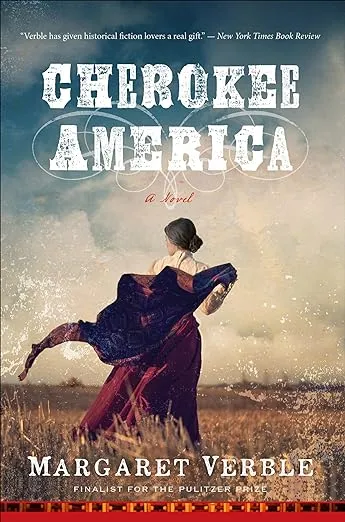Rachel is a writer from Arkansas, most at home surrounded by forests and animals much like a Disney Princess. She spends most of her time writing stories and playing around in imaginary worlds. You can follow her writing at rachelbrittain.com. Twitter and Instagram: @rachelsbrittain
Since the 1990s, November in the United States has been designated as a time to commemorate the history and contributions of Native Americans under the banner of Native American Heritage Month (or similar variations on that name). Especially considering the troubled history of Thanksgiving, a holiday celebrated in November in the United States and often centered around problematic depictions of colonization, it’s an important time to reflect and acknowledge everything done by and done to Native Americans.
Books are an incredible resource for learning about Native American history, and historical fiction, in particular, is rich with stories by and about the Indigenous people of this country. These four Native American historical fiction books are set throughout the nineteenth and twentieth centuries and feature characters of Mi’kmaq, Cherokee, Lakhota/Dakhota, and Lemhi Shoshone heritage. All four books are also by authors indigenous to North America, whether the United States or Canada. Since modern borders were only introduced post-colonization, and all the stories themselves take place primarily in the United States, that seems appropriate to me. Where possible, I’ve included the language these authors themselves use to identify their Native American heritage/affiliation.
I hope you’ll join me in trying to read more books by Indigenous authors this—and every—month.
The Berry Pickers by Amanda Peters
In 1962, the four-year-old daughter of a Mi’kmaq family who traveled to Maine to pick blueberries disappears. Her six-year-old brother, the last person to see her, is haunted by her loss. Meanwhile, Norma grows up as the only child of an affluent Maine family. Her overprotective youth leaves her with troubling questions as she grows up. Her parents are hiding something from her. But what is it?
Cherokee America by Margaret Verble
A wealthy farmer and mother to five boys in late nineteenth-century Cherokee Nation West, Check, is not a woman to be taken lightly. So when danger comes to her community—and her family—she bands together with her neighbors to protect each other. As the violence escalates, Check, her sons, and her community must grapple with the decision to expel one of their own.
Margaret Verble is an enrolled citizen of the Cherokee Nation.
Past Tense Newsletter
Sign up for our weekly newsletter about historical fiction!
Thank you for signing up! Keep an eye on your inbox.
A Council of Dolls by Mona Susan Power
Through the stories of three young girls and their dolls, Mona Susan Power tells a powerful story about the cascading effects of the abusive Indian Boarding schools many Native American children were forced to attend. When Cora is sent to the Carlisle Indian Industrial School in the early 1900s, her beloved buckskin and beaded doll is destroyed. But is the spirit of the doll really lost? When her daughter and granddaughter face horrors in the decades that follow, there certainly seems to be something special about their dolls who seemingly comfort and even protect them.
Mona Susan Power is an enrolled member of the Standing Rock Sioux Tribe (Iháŋktȟuŋwaŋna Dakhóta).
The Lost Journals of Sacajewea by Debra Magpie Earling
The woman immortalized in U.S. history as a translator and guide on the Lewis and Clark Expedition is recentered in this story that brings Sacajewea’s full strength and bravery to light. Orphaned, kidnapped, and sold to a French Canadian trapper after her village is raided, Sacajewea knows all that is left to do is survive. So when she is brought into Lewis and Clark’s expedition with her newborn son, knowing the arduous journey that lies ahead, she determines to do exactly that: survive.
























 English (US) ·
English (US) ·